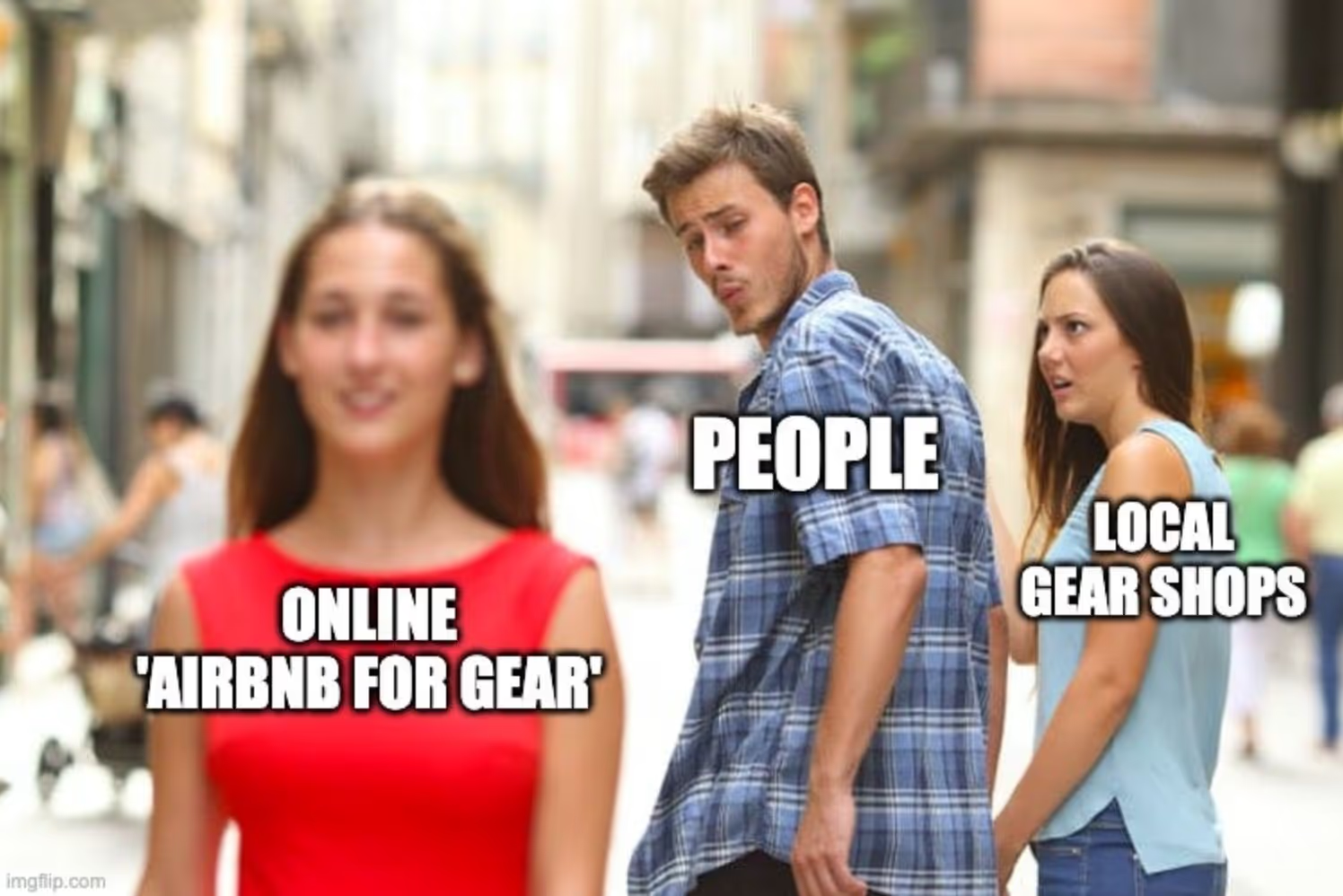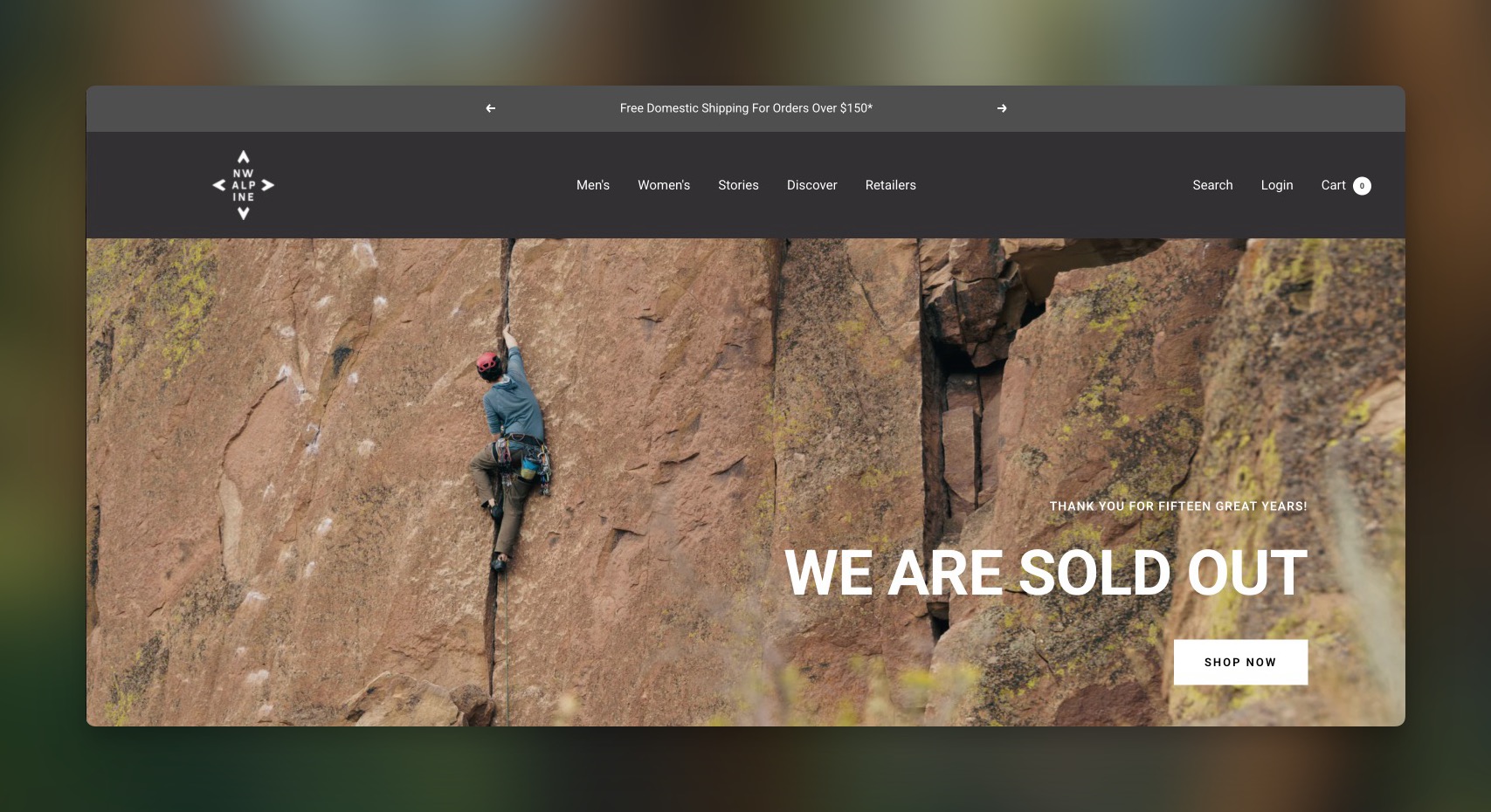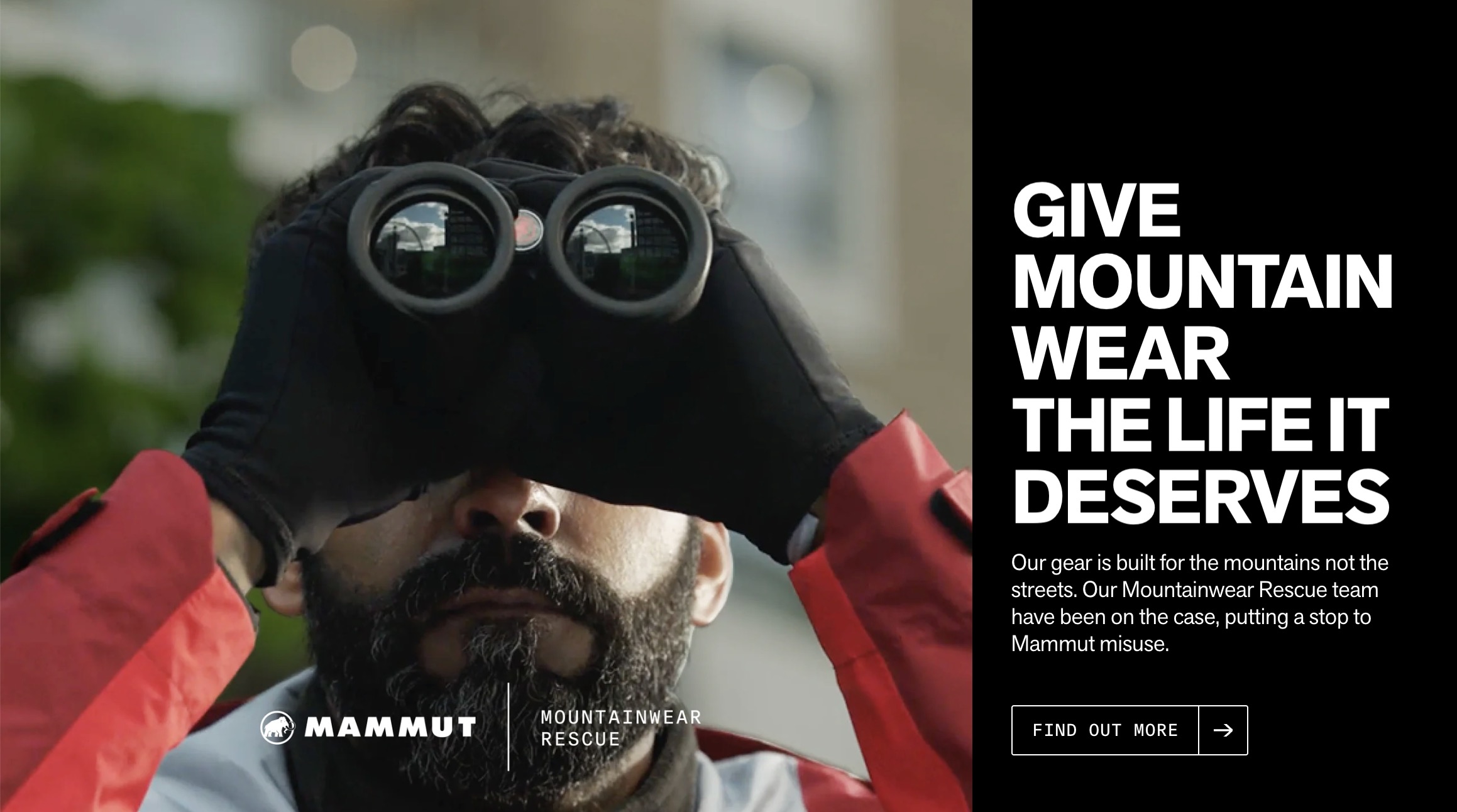A while back, I stumbled across an article recently about a new startup purporting to be the “Airbnb of outdoor gear”. It lays out the case of the sharing economy moving to the outdoors, details how the founder came up with the idea while wanting to borrow gear on vacation, and touts the positive environmental impact of sharing and re-using. It’s a great story, but it’s one I’ve heard before — over and over and over again. It feels like one of these pops up each year with similar claims of transforming the recreation economy and bringing gear access to everyone.
The thing is…it never works out great.

I’ve seen a bunch of startups with almost identical pitches. A few of those being GetOutfitted (dead), Outdoors.io (dead), Stokeshare (dead), Splinlister (focused on P2P bikes), Gearrilla (dead), GearCommons (dead), and a few that are currently active like OutdoorsGeek, iShed (locally focused), and Arrive Outdoors. These startups typically fall into one of two categories:
- The “Amazon” version, where the startup controls the supply and distribution. Essentially they have a warehouse and team somewhere responsible for managing inventory, shipping gear where it needs to go, and organizing it when it comes back.
- The “peer to peer” version, where the startup acts as a middleman between local enthusiasts with gear they don’t use all the time, and other locals who want to borrow that gear. This is more like the Airbnb model — a “gear” company that doesn’t own any gear.
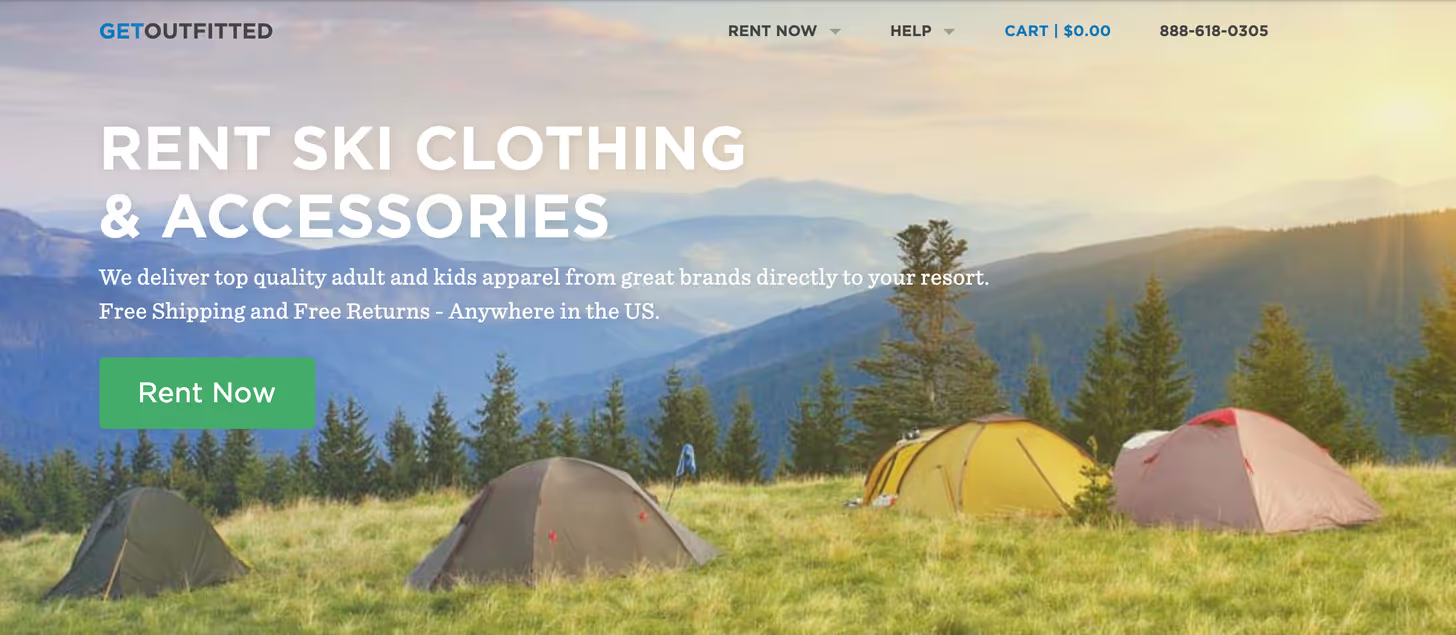
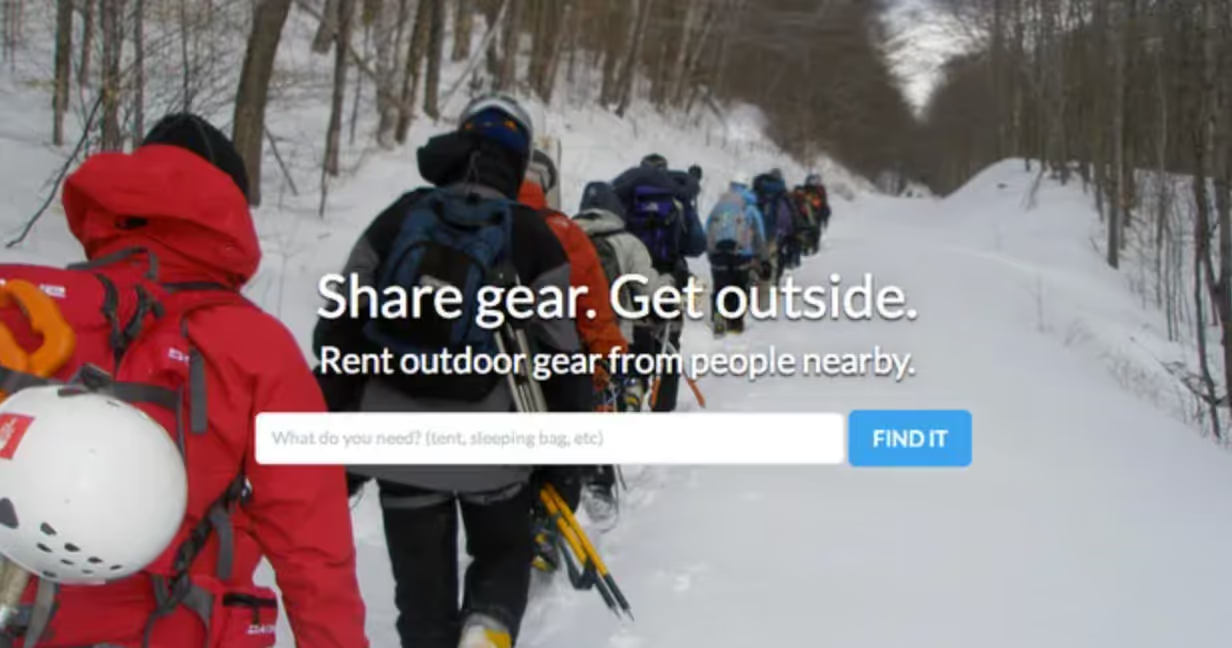
There are a couple of common threads I noticed across these different companies.
Start small, fail big
A seemingly common scenario is that these startups can be decently successful at the beginning. When you’re focused on a single area and market of customers, you avoid many of the problems that crop up as you try and scale. But, at this stage you’re essentially running a local outdoors shop — many of which have their own gear rental programs (or places like REI). However, ambition has costs. When you try and expand beyond your region and serve a more national audience, things get complicated. Shipping gets hard, warehousing gets hard, and your customer base might not scale as much as you’d like.
People just don’t rent gear that often
This is also part of the problem with scaling. Unless rentals are a non-essential part of your business (see REI), companies will *have* to scale at some point in order to grow their potential customer base. Unfortunately, as sexy as the idea sounds, people just aren’t interested in renting gear that often. Every post-mortem for these startups mentions that the average person only rents gear a few times a year (like 1-3). When your core customer is that infrequent, it’s pretty hard to run a business on rental margins. Additionally, good outdoor gear continues to get cheaper. Dollar for dollar, the quality of tents, clothing, etc has never been higher thanks to folks like REI, Coleman, and yes, Walmart.
Here’s a quote from the founder of GearCommons:
”The urban outdoor enthusiast (our target) usually only goes outside on the weekends. This means that they spend Mon/Tues/Wed coordinating trips with friends for the upcoming weekend. By Thursday, they realize they need gear, they’ve heard of us, and they perform a transaction on GearCommons. So we found that we only made money one day a week… on Thursdays.
Additionally, people who rent gear typically only do so once or twice a year. This means our customer really only needed us (and would give us money) 1–2 times per year. In the 2.5 years we were in business we only had a handful of repeat customers. That’s a problem if you’re trying to make money and keep your business alive.”
The economics
The market dynamics are very skewed towards local shops and REI's of the world being able to support rentals. Local shops/REI can run more tailored rental programs for their area closer to cost (or at loss) since it brings in foot traffic and converts longer-term customers. However, even that often isn’t enough as there has been a decline in local rental programs (and local gear shops) overall.
High quality gear is expensive to rent, and needs to be replaced to maintain quality standards. Budget gear is less expensive to rent, but you’re still spending time and money in shipping, cleaning and repairing gear. The gear with the best margins (skis, bikes, etc) are also the hardest to ship, further skewing things towards local providers. Furthermore, in the “Amazon” model, you’re dealing with a business model that deals with two-way shipping *every time*.
The friction
With the “peer-to-peer” model, you’re not dealing with shipping but your margins are lower and the mental overhead of acquiring/returning the gear is passed on to both the renter and rentee…making the process not quite as “easy” as intended. Now I need to coordinate with people to pick up/drop off my gear, decide when I'm using/not using my stuff, and assess my level of comfort with letting other people use my things.
Some startups tout the flexibility of "not having to travel with bulky gear" and instead renting it, but my most bulky gear is also stuff that I would be unlikely to ever loan out to a stranger. I'm just not comfortable handing off my several thousand dollar mountain bike to someone I don't know. I have close friends who would *never* let me borrow their mountain bike. You can run into a similar issue with with skis (which come with an additional set of DIN + boot adjustment issues).
The verdict
This all isn’t to say that a gear rental startup can’t be successful. Arrive Outdoors recently raised $4.75 million, and I wish them the best. With the growth of interest in outdoor activities during the pandemic, perhaps this is the right time for a company to succeed. But I’d love to hear what these companies are doing different than the folks who came before. Stop writing about them like it’s the first time someone thought of it.
An ongoing list (last updated August 2024):
Arrive Outdoors - Pivoted to resale marketplace
Quipto ☠️
GetOutfitted ☠️
Shurable ☠️
Outdoors.io ☠️
Stokeshare ☠️
Splinlister ☠️
Gearrilla ☠️
GearCommons ☠️
RexChanger ☠️


